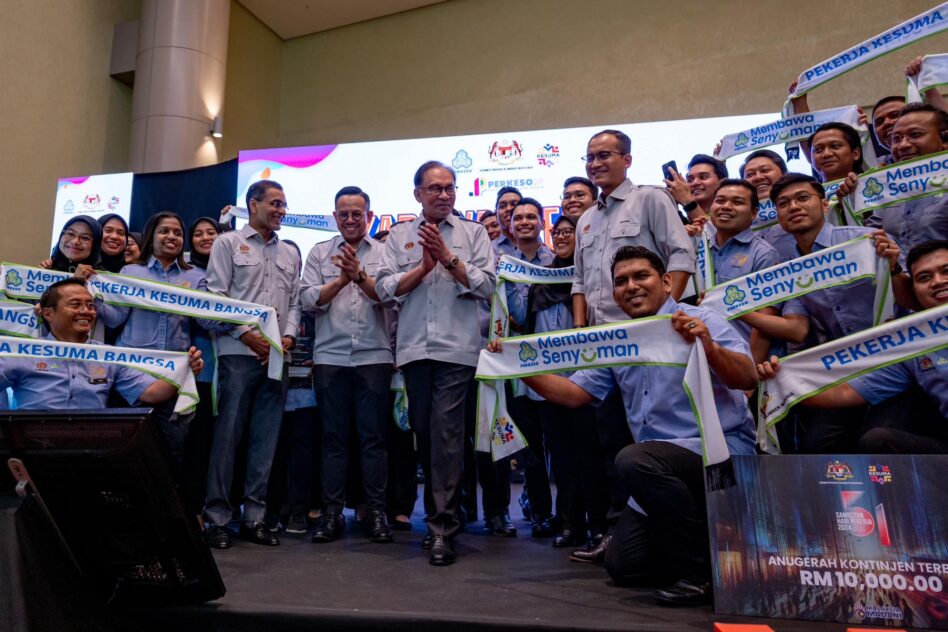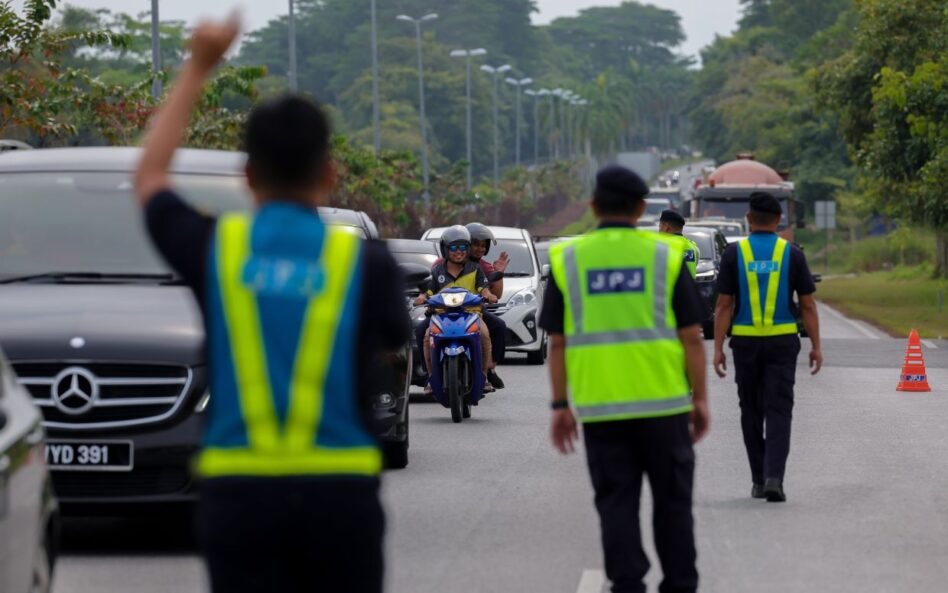By Yamin Vong
DURING the Conditional MCO, I was in Kota Kinabalu (KK), Sabah, when I passed by Likas sports complex’s car park filled with silent tour buses, grass growing around them.
Whether in KK or Kuala Lumpur (KL), the tourist bus sector is one of those which should get special attention and serious money from the government because it is a unique problem.
Hotels which are lumped as being in the tourist sector are properties with land and building. Yes, they will lose some of their value in today’s steep recession but these landed assets will recover their price when the Covid-19 pandemic is better understood and travel becomes less uncertain.
Tourist buses, however, represent a completely different challenge. The tourism business isn’t going to recover anytime soon and by that time, if the buses aren’t used, they will depreciate to a fraction of their value.
The general consensus is that it will take four years to roll out a vaccine, and even then, there is no guarantee that a vaccine can be developed. Just like there’s no vaccine for HIV and its disease, AIDS.
Overall, the tourist industry must be ready to adjust into doing something other than tourism, said the Secretary-General of the Ministry of Transport, Datuk Isham Ishak.
“But one important lesson that must be learnt is that data compilation on the part of the tourism industry including tourism bus sector is lacking and that there are still many out there who are not registered, unlicensed drivers and who are “alibaba” to others to operate.
“They need to be under one organisation, beef up their database and must be registered with SOCSO so that we can help them faster.
“As one single association, they can also help weed out the alibaba companies, unlicensed drivers and manage the companies against illegal tourist vans from Thailand,” he said.
In the Malaysian context, Alibaba is the term to describe rental of Bumiputera licenses to non-Bumiputera operators.
For the tourist bus industry itself, it’s going to be an existential problem. “We can only pray now,” said B Long (not his real name), a 20-year veteran in the sales of used buses and also an owner in a credit company. He didn’t want to be named.
“We used to collect about RM3 mil a month in repayments of bus loans. Last month, we only collected RM300,000. Many Malaysian credit companies are in deep trouble unless the government comes to their rescue.”
“More than 60% of the tourists came from China. The rest came from Indonesia, Iran etc. The tourist industry globally is condemned to death. By the time it recovers, it will be too long for those who took loans to buy tour buses,” he said.
“The government is adding to the misery of bus operators when it told the bus sekolah operators not to collect money from parents during the MCO. How are the school bus operators going to service their installements? At least allow the school bus operators collect half the money,” he said.
“The bus kilang operators in Johore and Selangor are also in danger. Singapore has already extended its Circuit Breaker to July. Bus Kilang are also not operating and they have no cash flow,” B Long reminded.
“As for the proposal by the MOT to re-purpose tourist buses to factory buses, there will be technical issues like insurance.
“More importantly, bus kilang earn much less than tourist buses. A tourist bus costs between RM550,000 to RM680,000 and the monthly repayment is about RM12,000 a month. Which Bus Kilang can earn so much in a month?” he asked.
The vanishing of demand for tour buses is where the government needs to focus some of its aid to the owners. The tour bus sector mostly falls under the Ministry of Tourism and Culture (MOTAC) while some of the jurisdiction including vehicle technical specifications is under the Ministry of Transport.
According to Isham, the MOT is in the midst of assisting tourist bus drivers with the disbursement of financial support under the government’s Prihatin programme.
“The MOT has also been given the green light to allow the tourist buses to be used as Bus Kilang temporarily.
“For Van Pelancong (tourist van), we are preparing to allow them to be used to send parcels,” Isham said, replying to a Whatsapped question.
On a separate issue, tourist buses were mostly bought with loans from credit companies not banks. These credit companies are licensed and fall under the jurisdiction by the Ministry of Housing and Local Government.
If they had been bought with loans from banks, the bus owners would have been somewhat protected by Bank Negara’s instruction for a six-month moratorium on vehicle loan repayments.
But in this case, the credit companies are between a rock and a mountain. They operate using funds from banks. While banks have been directed by Bank Negara to give moratorium for vehicle and mortgage loans, this dispensation is not extended to credit companies.
Meanwhile, the tour bus companies are pressing the credit companies for the loan moratorium under the misperception that they are eligible.
The outcome is that increasingly; the borrowers are starting to surrender the buses to credit companies because they just don’t have the cash flow to service the loans.
Hopefully, the measures by the Ministry of Transport are first steps to rescuing the debt-strapped owners of tourist buses.
Meanwhile, the proposals to the Minister of Transport, Datuk Seri Wee Ka Siong from the Pan Malaysian Bus Operators Association show that the public land transport industry needs radical surgery to re-boot it to the new normal.
The Pan Malaysian Bus Operators Association (PMBOA) represents the interests and consists of stage and express bus operators throughout Malaysia.
“Under the Covid-19 Movement Control Order (MCO), the bus industry is categorised as being an essential service. As such, our members are required to continue to provide bus services to the public, said PMBOA’s president, Datuk Ashfar Ali.
“However, under the MCO, travel is restricted for the general public and there are practically no passengers taking our busęs resulting in zero income for bus operators. Some States have barred the operation of public transport.
“Those who operate have to continue paying for salaries, diesel, maintenance, spare parts and so on, to provide the essential service to the public. This has caused serious financial constraints to bus operators.
“The bus industry has been facing severe financial problems for the past few decades. Numerous bus operators have been operating at losses and are just keeping their heads above water. With the implementation of the Covid-19 Movement Control Order (MCO), it will sound the death knell for many bus operators.
“Bus operators provide a public service and should they stop operations, the public particularly in smaller towns, and the rural areas and those travelling inter-cities will be seriously affected.
“The economic situation is unlikely to be normal in the near future. Public transport users are affected by the Covid 19 pandemic, which at the same time affects the incomes of bus operators. This situation has worsened with each extension of the MCO as the Government zbattles to curb the spread of the Covid-19 virus.
“Throughout the MCO, like many other industries the bus operators are facing cash flow problems in their businesses. This will continue even after the MCO is lifted. The confidence of users of bus service will also be affected. It may take a period of six (6) to twelve (12) months to restore their pre MCO level.
“Bus operators are firmly committed to continue operating their services. However, the dire situation that bus operators have been facing for the past 10-12 years has been compounded by the severe repercussions of Covid 19 has made it impossible for bus operators to continue providing their services without any assistance from the Government.
“We are therefore appealing to the Government to provide special assistance for bus operators. The assistance will keep our members and the bus industry afloat during the MCO and post MCO periods.
“Our appeal is aimed at sustaining the public transport industry to ensure the continuity of service operations while helping to ease the financial burden faced by bus operators and thus guaranteeing the continued employment of their employees,” said Ashfar.










